Tinnitus Audiologist For Expert Treatment and Consultation
Tinnitus is when you experience noises in one or both of your ears. Tinnitus sounds can be perceived as a high-pitched tone ringing, a rushing water noise, or sometimes a low-pitched humming. Tinnitus is a common problem. It affects about 15% to 20% of the population and is especially common in older adults.
Call us at (416)530-4508 to schedule a tinnitus treatment consultation or book online now.
What is Tinnitus?
Tinnitus is an ear condition, affecting about 10%-25% of the population and is especially common in older adults. Tinnitus symptoms include hearing persistent buzzing or ringing sounds in one or both of your ears. The noise you hear when you have tinnitus isn’t typically caused by an external sound, and other people usually can’t hear it. Tinnitus sufferers report some degree of noise induced hearing loss.
What to expect at tinnitus consultation

15 min
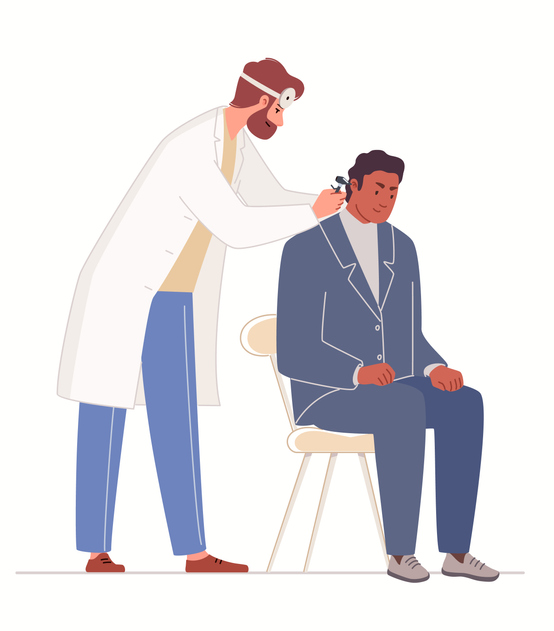
20 min
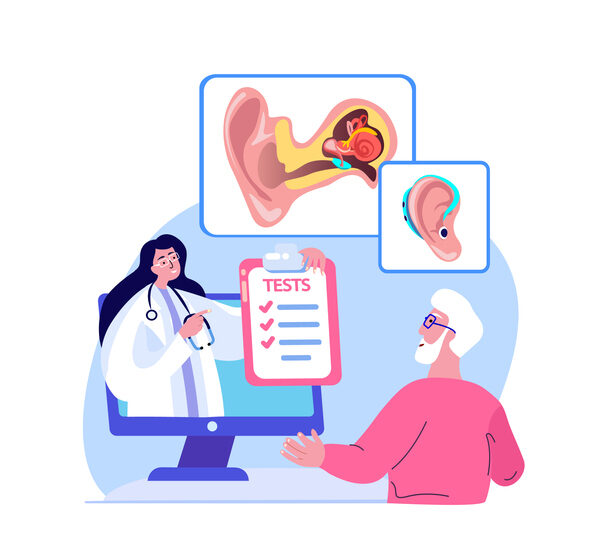
20 min
What Causes Tinnitus?
Tinnitus is usually a symptom of an underlying condition, such as age-related hearing loss, a history of exposure to loud noises, an ear injury, or a problem with the circulatory system. In most cases of tinnitus, the noise cannot be perceived by anyone other than the person experiencing it. However, in certain cases of medical origin, one can experience pulsatile tinnitus, characterized by rhythmic thumping, whooshing, or throbbing in one or both ears. Pulsatile tinnitus is a result of underlying medical health conditions and needs to be addressed by a medical doctor. There is no known cure for tinnitus. Fortunately, tinnitus management and treatment are accessible.
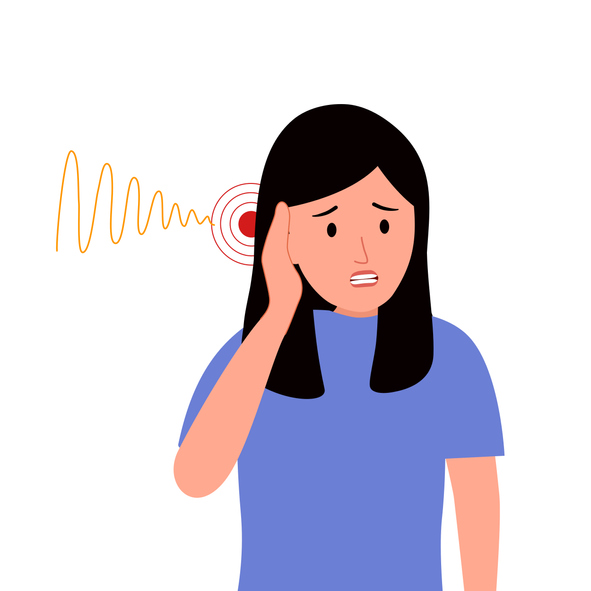
What Are Some Treatment Options for Tinnitus?
For chronic tinnitus that accompanies hearing loss, usually wearing hearing aids will suffice to alleviate tinnitus. Other treatment options include tinnitus retraining therapy or sound therapy, for example, the Widex Zen therapy.
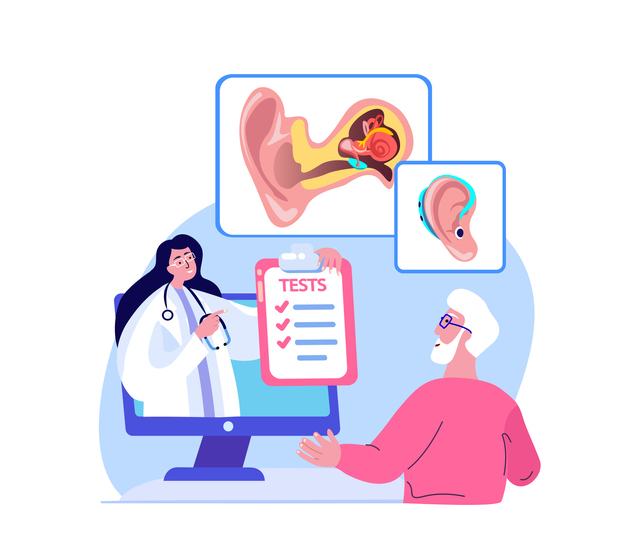
Risk Factors for Tinnitus
1. Noise Exposure
This can be present in loud workplaces, concerts, and sporting events. It is the most common services related disability among veterans due to loud sounds they may have experienced from gunfire, machinery, bomb blasts, or other similar sources.


2. Hearing Loss
Caused by factors such as aging or exposure to loud noise, is strongly associated with tinnitus. Some people with hearing loss, however, never develop tinnitus.
3. Medication side effects
Medications in high doses associated with tinnitus include non-steroidal anti-inflammatory drugs (e.g., ibuprofen, naproxen, and aspirin), certain antibiotics, anti-cancer drugs, anti-malaria medications, and antidepressants.

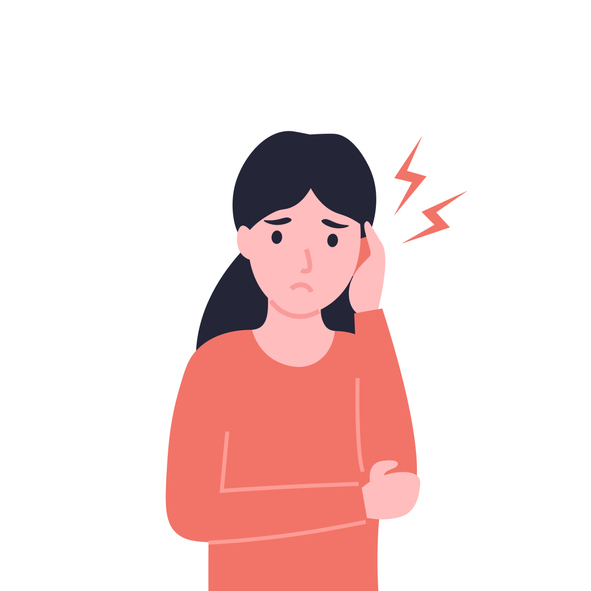
4. Ear wax or ear infections
Blockage from ear wax or fluid from infection
5. Head or neck injuries.
A head/neck injury can damage structures of the ear, the nerve that carries sound signals to the brain, or areas of the brain that process sound, causing tinnitus.

Other tinnitus risk factors include:
Ménière’s disease. Tinnitus can be a symptom of Ménière’s disease, an inner ear disorder that can also cause balance problems and hearing loss.
Jaw joint problems. The joint that connects the lower jaw to the skull is close to the ear. Jaw clenching or tooth grinding can damage surrounding tissue, causing or worsening tinnitus.
Tumor-related disorders. A vestibular schwannoma (acoustic neuroma) is a benign tumor on a nerve that leads from the inner ear to the brain. Acoustic neuromas and other head, neck, and brain tumors can cause tinnitus.
Blood vessel problems. High blood pressure, atherosclerosis, or malformations in blood vessels, especially if they are in or close to the ear, can alter blood flow and cause tinnitus.
Chronic conditions. Diabetes, migraines, thyroid disorders, anemia, and certain autoimmune disorders such as lupus and multiple sclerosis are among the chronic conditions that have been linked to tinnitus.
Concerned about your hearing? Chat with our live agent or call us now!
FAQ
For those with hearing loss, the most effective treatment is wearing a hearing aid. Complemented by sound therapy such as notch therapies (intended to understimulate frequencies where the the hearing loss lies). For those with no conventional detected hearing loss, sound therapy may provide relief. There is currently no “cure” for tinnitus. For future treatments, researchers are investigating the regeneration of auditory nerves using pharmaceutical means.
Depending on the cause of the ringing, the intervention is different. If due to hearing loss, hearing aids are the most effective intervention to reduce strain. Some home remedies are sound machines, counseling, therapy, and cutting out caffeine. Please visit your audiologist to get a hearing test for a proper assessment.
The ringing may indicate hearing loss, a medical condition that is vascular or neural in origin, ototoxicity, etc.
A study done in 2023 by the Eaton-Peabody Laboratories (EPL) found that some “normal hearing” individuals who report ringing in their ears are experiencing auditory nerve loss that is not picked up by conventional hearing tests. A conventional hearing test measures a person’s hearing threshold at 250Hz up to 8000Hz. However, this person may be “normal” in these frequencies but has a hearing loss in the higher frequencies not commonly tested. From 10000Hz up to 16000Hz. Eaton-Peabody Laboratories (EPL) measured the response of participants’ auditory nerve and brainstem and discovered that persistent ringing in the ear was linked to loss of auditory nerve. Furthermore, there was overactivity in the participant’s brainstem.
Ear wax removal may be uncomfortable, but should not be painful. Properly softened and emulsified wax can be removed easily and without pain. In some cases of severe blockage such as earwax impaction, patients may feel discomfort.
To experience the least discomfort during earwax removal, we recommend patients to soften the earwax at home with oil or special drops that we carry in the clinic. This will ensure a painless procedure at the clinic. Our audiologist is very experienced and have dealt with removal of impacted wax and deeply lodged foreign objects such as bracelet bead (the things you find in a child’s ears)!
| Hearing Exam (Over 60) | Free |
| Hearing Exam (Under 60) | $90 |
| Under 18 Pediatric Hearing Test | $110 |
| Industrial Hearing Test (i.e. Toronto Police) | $125 |
| Removal of Ear Wax | $95 |
| Office Visit | $45 |
| Consultation for Tinnitus | $90 |
| Custom Ear Plugs (sleep, noise, musician) | $270-$375 |
The type of hearing aids a patient chooses following a thorough evaluation and hearing test determines the pricing of those devices. The price range for each pair is $2800-$5500*. The cost of the hearing aid also includes lifetime in-clinic services, a two-year loss and damage warranty, and a three-year manufacturer warranty. Learn more about our offerings by chatting with us.
*Following ADP government support
OHIP does not cover hearing tests or ear wax removal in audiology clinics. The good news is most insurance with work or private insurance plans do cover audiology services and our clinic will provide patients with a detailed invoice for insurance claim. We can also help you find our what your coverage is.
OHIP covers hearing aids to some extend. The Assistive Device Program (ADP) covers up to $1000 ($500 per ear) every 3-5 years. Bloor hearing clinic will handle all application paperwork for patients to access funding so patients do not need to pay this amount when purchasing the hearing aids. We will work with you to find the best suited hearing aids for your lifestyle and budget, and offer flexible payment plans.
